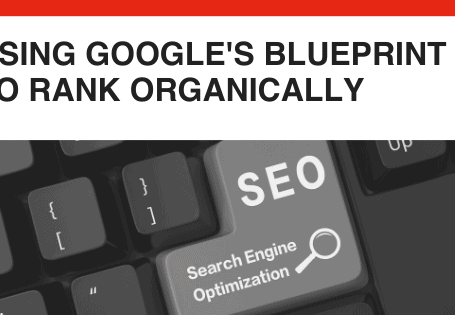The Rise of Voice Search and Answer Engine Optimization
By: Rank Media

Fifty years ago, the idea of talking to a technological device seemed futuristic. Star Trek portrayed characters talking using something called a communicator, which served as a precursor to the current devices that occupy the 21st-century market. Nowadays, the practice of seeking out answers by communicating with a mobile phone, or even a home assistant such as Alexa, Siri, Cortana, or Google is widely accepted and common.
What has ignited the rise of voice search? The advancement of technology over the past 15 years is just remarkable. Back in the day, brick phones and subsequently flip phones were rather commonplace, lacking the technology that current mobile devices contain today.
The advent of the smartphone changed the game forever for digital marketers, giving users ubiquitous access to information regardless of their location. As search engine algorithms have evolved, so have listings and information provided by digital assistants. Optimizing your business for voice search should be a central focus of your organic search strategy… it’s no longer a luxury that brands can afford, but rather a necessity.
Search Engines have Evolved into Answer Engines
Finding an answer to any question has never been easier. Just input any question into either Google or Bing, and you’ll receive a clear response directly from the search engine listing results. The increased usage of structured data and content marketing has made it easier for search engines to process a wide range of queries and display the correct information immediately, shown in what’s called a featured snippet or in Google’s knowledge graph.
In a recent webinar hosted by Trustpilot, the term “answer engine optimization” was coined by Jason Barnard, also referred to as “AEO.” While generic searches related to products and services provide a multitude of organic and paid results, specific search queries and questions will provide the most relevant content.
How to Succeed with Answer Engine Optimization
Much like regular search engine optimization, AEO requires digital marketing professionals to craft content that addresses specific questions. For example, a web page dedicated to the Boston Bruins may provide answers to the following questions:
- Who owns the Boston Bruins?
- What arena do the Boston Bruins play in?
- Who is the captain of the Boston Bruins?
- How many Stanley Cups have the Boston Bruins won?

By crafting content around frequently asked questions and phrases with high search volumes, it becomes easier to navigate past the competition in search results, especially if your content is deemed authoritative and relevant. With regards to local SEO, answer engine optimization becomes even more critical if users are posing the following questions to digital assistants:
- What is the best restaurant near me?
- Which restaurant around me is open past 9 pm?
To serve the most information to search engines as possible, you need to ensure that all of your local listings are fully optimized, both with critical business information and with positive ratings/reviews. As with regular search engine optimization campaigns, search engine companies want users to have the best experience possible and find relevant content quickly. A business with an average 1-star rating will likely be in the back of the line when it comes to a query such as “what is the best restaurant near me?”
Why Answer Engine Optimization is Important
Okay, you understand that optimizing your business for specific searches is possible, but is it essential? Well, consider some of these stats:
- 42% of the UK population utilizes voice search on a daily basis.
- Voice search makes up 20% of all mobile searches in the United States.
- 5 million people in the United States are actively using digital assistants.
While speaking to Siri was a novelty several years ago, digital assistants such as Google Home and Alexa are becoming fixtures around the world. Riding the coattails of Google and Amazon, both Facebook and Apple plan to launch their digital assistants soon in an attempt to carve out market share for themselves.
Do I need to adjust my SEO strategy for AEO?
It may seem like answer engine optimization is integrated into a strategic and highly structured search engine optimization campaign. However, traditional SEO focuses on developing the organic presence of a website for specific searches and keyword phrases on computers and mobile devices, whereas AEO focuses on optimizing your business/website for particular queries and answer engines. Optimizing for answer engines requires employing the following tactics:
- Communicate what your business is about. Search engines can only process the information and content provided to them directly via websites. If your onsite content is ambiguous or missing pertinent information, it’ll be easy for your business to be misrepresented or display incorrect information on local listings. You can avoid these issues by utilizing structured data markup to clearly and concisely provide information to search engines.
- Establish your credibility. As with regular search engine optimization campaigns, the goal of AEO should be to establish your credibility and prove to answer engines that you’re an authoritative source of information. Develop your trustworthiness by building up your brand authority, positive mentions, inbound links, and third-party reviews.
Closing Thoughts
Operate with the mindset of optimizing your website and business for the end users that are searching for information regardless of which device or method they choose. If it’s by text, ensure your website is fully optimized on desktop and mobile devices with informative content. If it’s by voice, ensure that you’re providing reliable and credible information that answer engines can efficiently process.
Zdeno Chara Image Source: HockeyFights.com







 (800) 915 7990
(800) 915 7990
